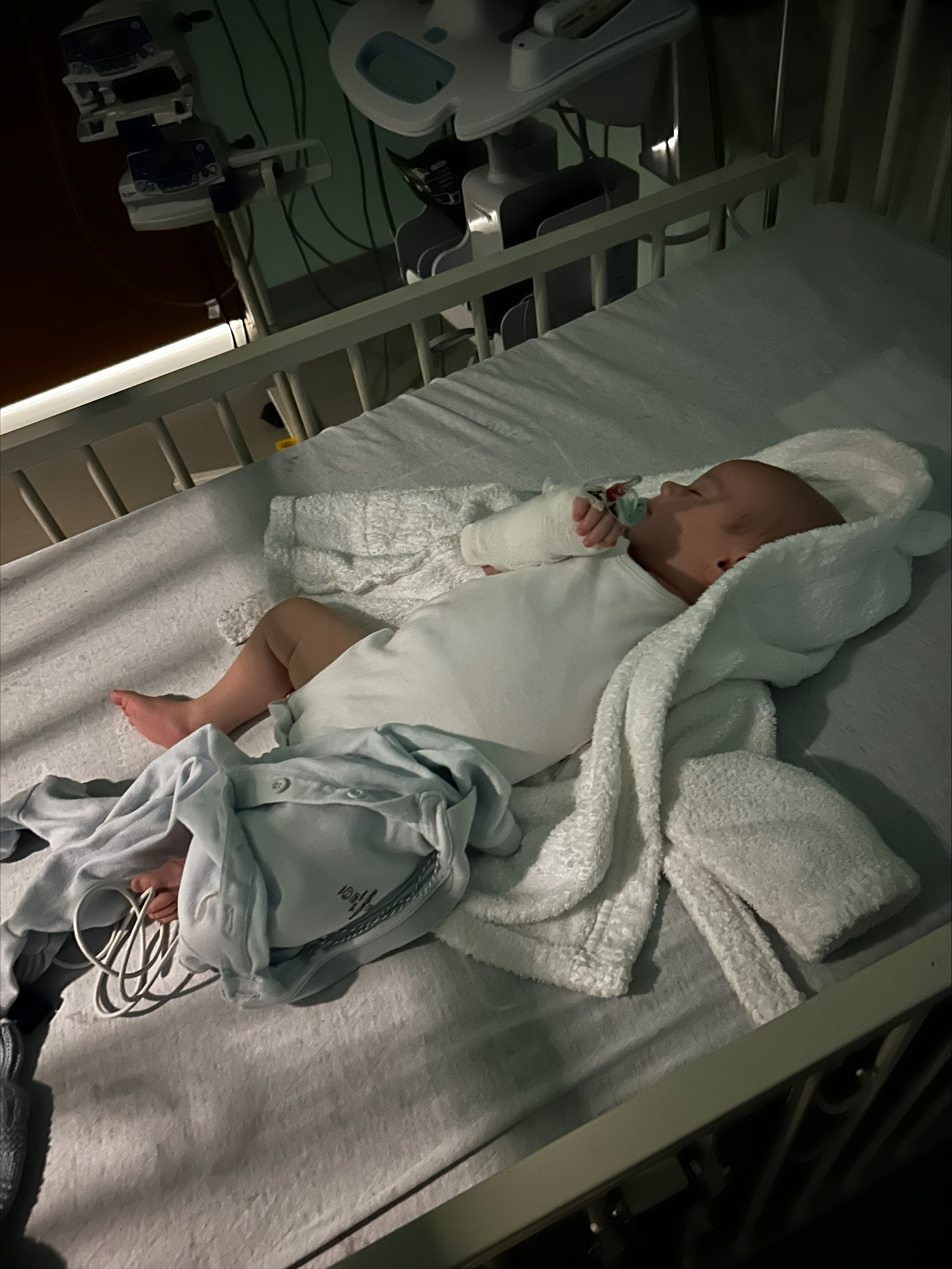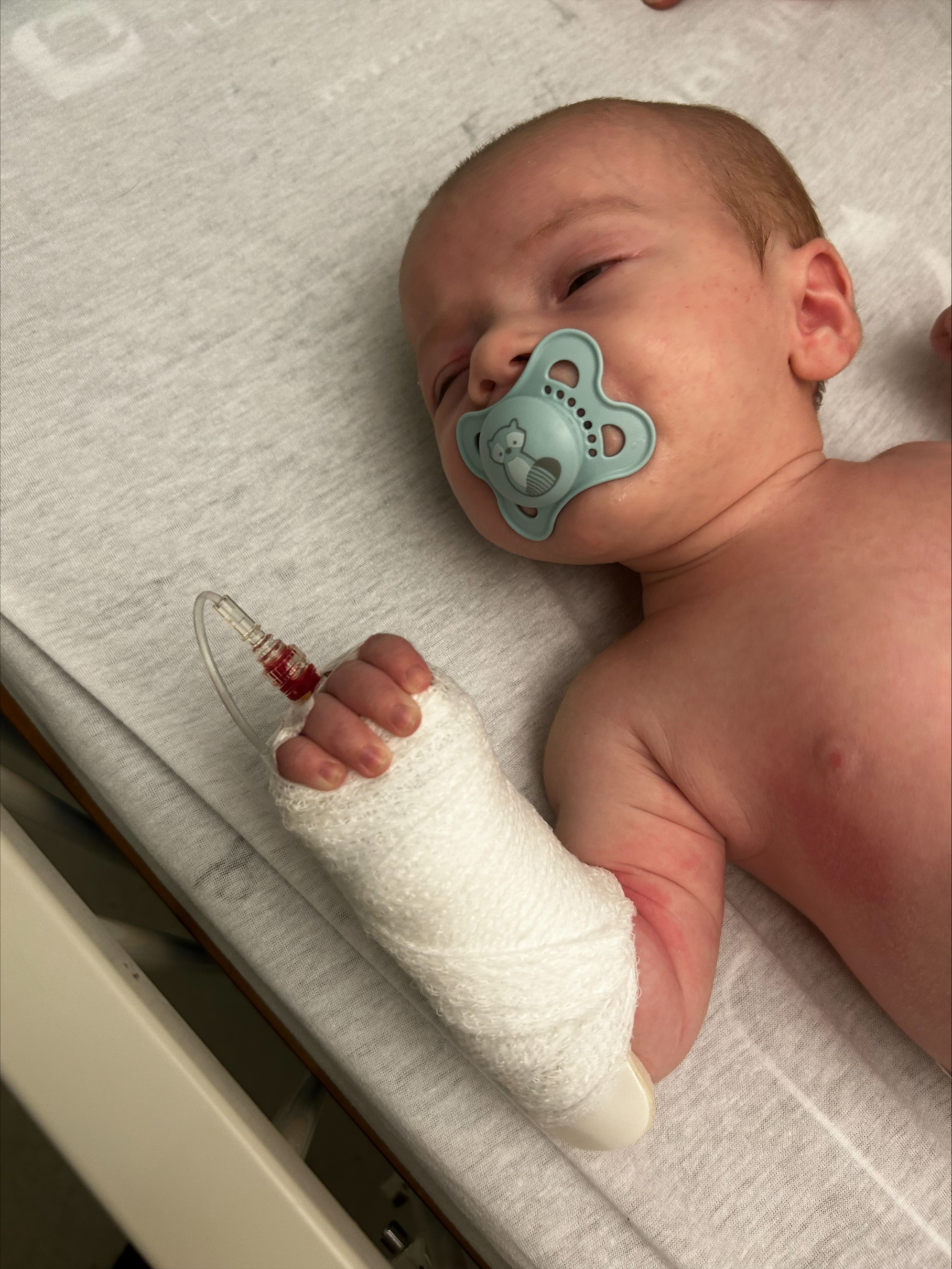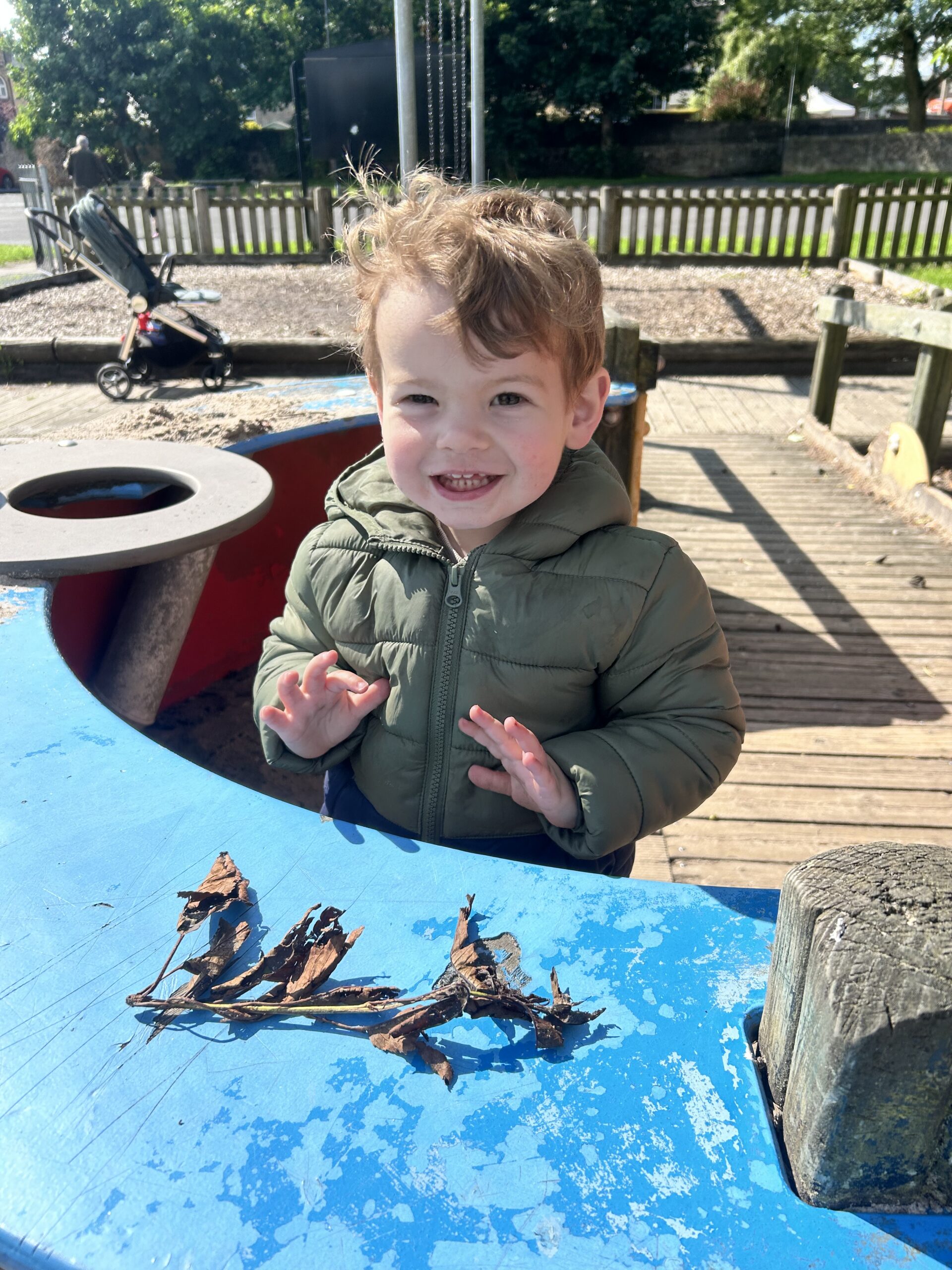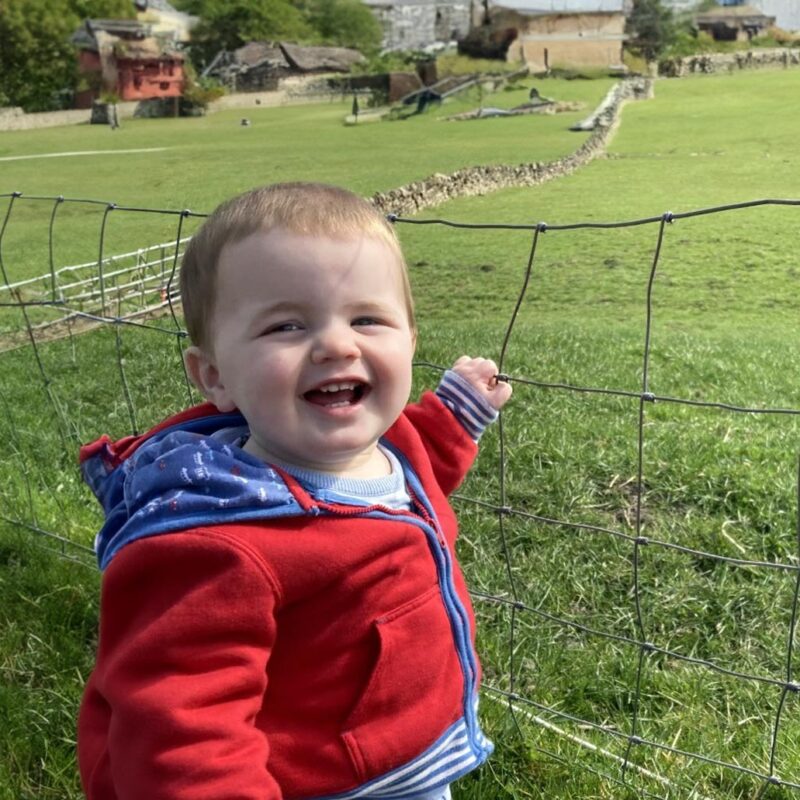Seven-week-old Aaron Millar was diagnosed with urosepsis after his mum, Kirsten, trusted her instincts and pushed for further checks when symptoms seemed mild.
Kirsten, a nurse herself, wants parents and professionals alike to remember that even a slight temperature in infants can signal sepsis – and that speaking up quickly can save a life.
In November 2023, Kirsten Millar, 32, from Stirling, Scotland, noticed her baby, Aaron, wasn’t himself.
“He started vomiting up his feeds and seemed to be sleeping more,” Kirsten said. “Later in the evening I felt like he was making a grunting sound when he was breathing. I knew instinctively something was wrong and called an ambulance.”
“I also have an 8-year-old daughter, Katie, so when Aaron was a newborn I wasn’t overly anxious since I had already had a child, so when he was ill I knew something was wrong,” Kirsten added.
Paramedics found Aaron’s observations borderline: a slight temperature, nothing obvious, but Kirsten and her husband, John, 38, took him to A&E anyway.

Aaron in hospital
“We were triaged and faced a long wait,” Kirsten said. “At one point we were told that after paracetamol we could wait and see if his temperature went down and then go home. I wasn’t happy with this. I just knew something was wrong but I didn’t know what.”
A consultant examined Aaron and couldn’t see an obvious cause for his distress.
“All his other observations were normal,” Kirsten said. “But I could see he didn’t look himself and the grunting noise when breathing was intermittent. The doctor was brilliant and said that although she couldn’t see an obvious cause she would admit him to paediatrics.”
What followed was a series of tests including a lumbar puncture, bloods, and urine samples.
“It was confirmed he had urosepsis,” Kirsten said. “Luckily we caught it early and after a three-day stay in hospital with IV antibiotics he was well enough to go home.”
Further investigations revealed grade 5 and 4 vesicoureteral reflux in both kidneys, a condition now well managed with no lasting damage.
Now aged two, Aaron is a “happy, relaxed toddler” according to his mum.
“He had a period of time where he was unwell with various different colds and illnesses as I think sepsis had lowered his immune system, but he’s always powered through,” Kirsten explained.
“We’ve been so lucky,” Kirsten said.
Despite being a nurse, Kirsten was struck by how subtle the early signs were.
“I knew a lot about sepsis but my son’s symptoms at times were mild,” she said. “I just had a feeling something was off.”
Her message to other parents is clear. “Trust your instincts – you know if your child isn’t right,” Kirsten said. “Speak up when seeing medical professionals and ask them to think about sepsis, even if a temperature is only borderline.”
Kirsten also has a note for healthcare colleagues. “I am a health professional and I still did not think of sepsis first,” she said. “It is so important in the early stages to consider it.”
If a loved one has an infection, use our sepsis assessment tool to determine the correct course of action.







